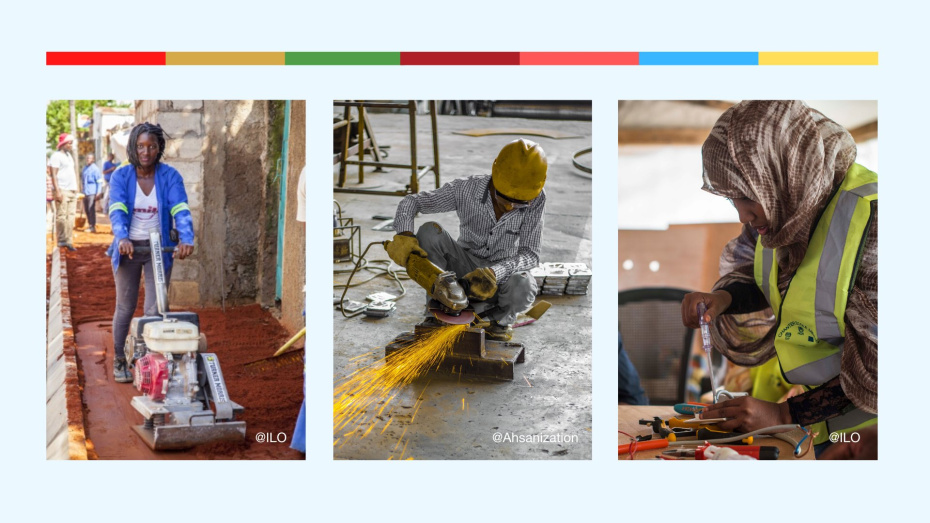Breadcrumb

COVID-19 and inequalities: ‘We must rededicate to the 2030 Agenda’

In the post-COVID-19, the world now faces a “steeper hill” in achieving the Sustainable Development Goals, International Labour Organization (ILO) Director-General Guy Ryder warned Tuesday during an online panel discussion focusing on inequalities and the informal economy.
“It would be catastrophic to abdicate from the 2030 Agenda”, as 1.6 billion people face an imminent threat to their livelihood, he added, during the event organized by the SDG Lab and the ILO.
Worldwide, $USD 9 trillion have been spent in stimulus measures, but these expenses were siloed in national initiatives and there is still very little in international transfers, said Mr. Ryder.
Stressing that the greatest need is where the resources are the most scarce, he said “the lesson of this pandemic is that we must rededicate to the 2030 Agenda. Our current situation is a result of our deficit in terms of achieving it.”
While the virus spreads without making distinctions between individuals, “in terms of social and economic impact, the virus discriminates in the most brutal fashion you can imagine,” said the head of the ILO.
Because of the soaring rise in relative poverty levels, the next pandemic will be a pandemic of hunger unless the international community swiftly implements measures to remedy this situation. “There is really a moment of truth as we build back better after this pandemic,” he added.
“A harsh light on inequalities”
Striking a similar note, UN Geneva Director-General Tatiana Valovaya said the pandemic had “shed a harsh light on inequalities,” notably as regards access to safety nets and health facilities.
She stressed the need to draw from lessons learned and best practices, not only to determine “how we can recover”, but also “how we can recover better, while addressing inequalities.”
It’s high time the world did away with the “culture of privilege,” emphasized the Executive Secretary of the Economic Commission for Latin America and the Caribbean (ECLAC), Alicia Bárcena Ibarra. In the pandemic’s aftermath, “a new social compact” and universal social protection plans were needed to “build resilience,” she said.
Based on ILO estimates, the pandemic has caused the loss of 305 million full-time job equivalents. Mr. Ryder urged universal social protection coverage and greater social protection of working people, including 170 million people – many of them women and migrants – in frontline health and social care jobs.
It is crucial to achieve a greater formalization of the informal economy, he added. “It’s no use improving the regulations if they don’t apply to people.”
“Social protection is a stabilizer in times of uncertainty,” agreed Ms Bárcena Ibarra.
The ECLAC chief also called for relief on interest payments, which would create “fiscal space” for governments to invest in formal jobs and invest in strategic sectors to build a “new economy based on sustainability.”
Asked how the international community could adequately address the various issues stemming from the pandemic, Ms Valovaya said “solidarity” should be the watchword.
“That requires us to realize how interdependent we all are. The challenges are global; we need global solutions and multilateralism,” she said.
